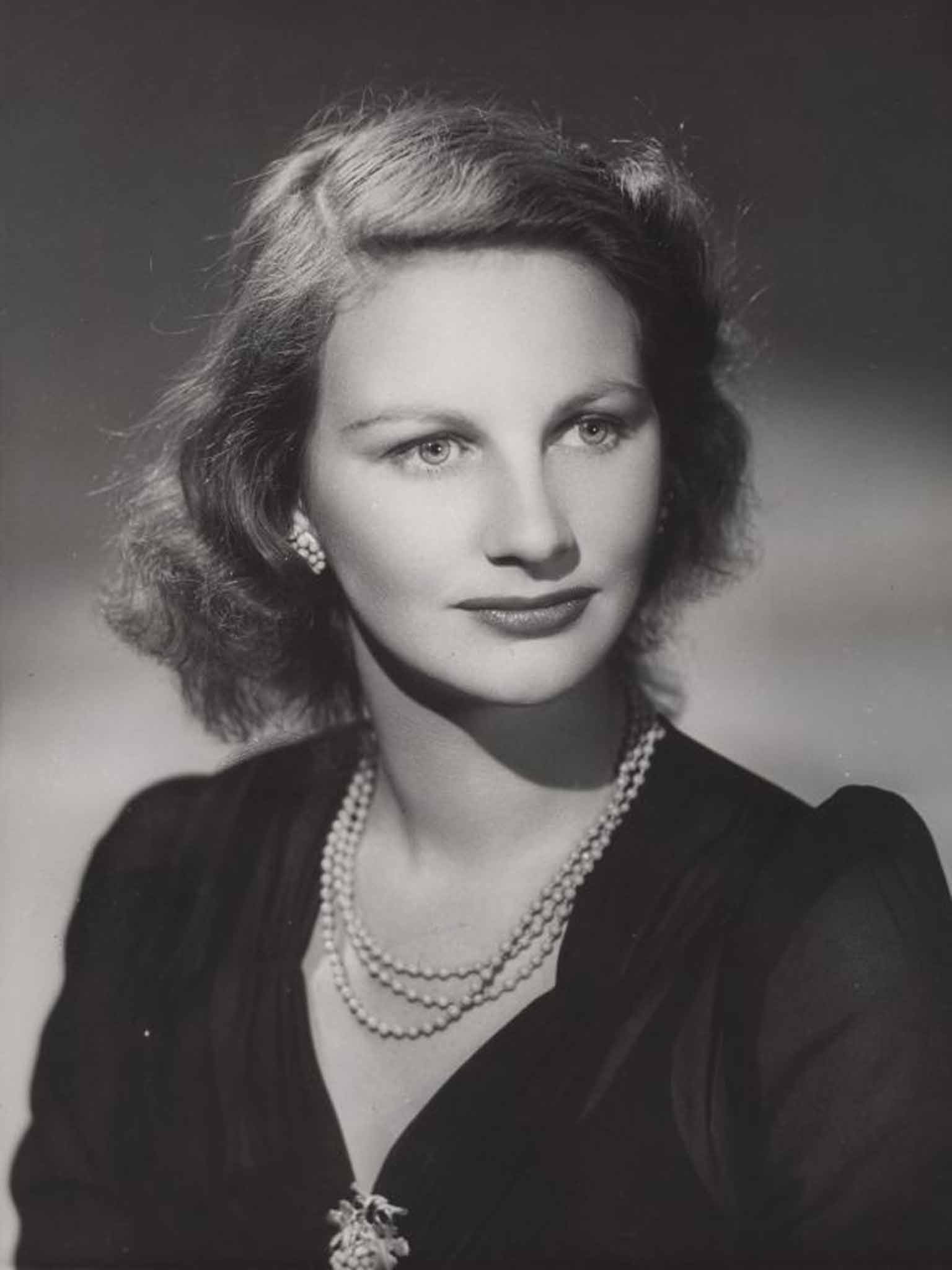The Dowager Marchioness of Reading: Society beauty who defied convention to fly planes and race cars, and outraged many with her views on hooligans
A patron of the Wild Camel Protection Foundation and campaigner against the maltreatment of Asian black bears, she was able to establish a lineage reaching back to William the Conqueror

Margot Duke, the Dowager Marchioness of Reading, was an unconventional and feisty woman who defied the usual customs and habits of the aristocracy. She was among the first women in Britain to obtain a pilot's licence, took to car rallying in the 1950s and delighted in travelling at speed, in the air or on land.
She was born in 1919, one of three daughters of Percival Duke and Violet Mappin, of the dynasty behind the jewellers and silversmiths Mappin and Webb. Researching her family history in later life, she was able to establish a lineage reaching back to William the Conqueror.
Following schooling at Benenden, she met Michael Isaacs, Viscount Erleigh, the son of Gerald Isaacs, 2nd Marquess of Reading. The memoirs of Eva, Marchioness of Reading, recount how Michael had become enamoured: "I did notice... that one extremely pretty girl, Margot Duke, kept coming to the top of his invitation list whenever he came home." He offered her a gold ring that had been presented by Lord Nelson to Lady Hamilton. "I told Michael to give the ring to Margot. She was delighted with the present." She was a striking beauty, as seen in photographs of her by the Bassano Studio in the collection of the National Portrait Gallery which show her with her first child, Simon, later the 4th Marquess of Reading.
In 1952 she took part in the Round Britain Rally, as a navigator and co-driver with Sheila Van Damm, who had begun competitive driving just two years before and who went on to set a speed record at Monte Carlo the following year.
The Marchioness's daughter, Lady Jacqueline Isaacs, inherited her mother's good looks and unorthodox approach to aristocratic life. Anne de Courcy, Lord Snowdon's biographer, recalled: "By 1968 Jackie, an acknowledged beauty, was a favourite of the gossip columns with an established London life, working as a model and in the Bond Street boutique of the designer Yves St Laurent. What no one, including her family, knew was that she and Tony were in love and having an affair."
When the Marchioness realised what was going on she walked up to Snowdon's house – they were neighbours – and warned him off: "Tony, I think you have got to step back out of our lives. You're getting too involved and it's not fair. And you don't really love any of us." Snowdon eventually took her advice, but not before the affair had become public and Jackie's face was on the front pages of newspapers around the world.
Duke's family history research led her to write the historical novel Anne of the Sealed Knot (1972) with RJ Minney, which gave a fictionalised account of the role of her ancestor, Anne Duke, in the conspiracy to reinstate Charles II as king.
A further literary escapade in the mid-1990s saw her arrange to publish in The Spectator a series of letters by Sir Charles Mappin, her half-brother, documenting his travels in the South Seas. Spectator editor Dominic Lawson wrote: "a few weeks ago I received by post an extraordinary document sent by Margot, Dowager Marchioness of Reading and subscriber to The Spectator." The Marchioness insisted that the text should appear unbowdlerised, so it carried a warning: "Readers will, perhaps, find shocking some of Charles Mappin's language, especially in respect of his cavortings with the likes of Chou Chou and others of his Polynesian concubines."
In 1998, during the World Cup finals in France, the Marchioness provoked outrage by appearing to support football hooliganism. Alan Clark had already defended England fans after scenes of violence, suggesting that they were being targeted and victimised by French police. In a letter to The Spectator, the Marchioness wrote, "We are a nation of yobs. Without that characteristic how did we colonise the world? And our fame as fighters is second-to-none."
She went on to explain in a subsequent interview, "I love England so much and I just feel that the so-called hooligans are just sort of over-enthusiastic. How is it that we conquered the world and that our armies went over the top? How is it that the most inventive people in the world come from England? It is because we are a nation of fighters. I get fed up with everyone saying how evil these yobbos are. I don't agree with broken glass and knives. But what an English tough guy does is to fight with his fists, which is a good clean fight."
Harold Brooks-Baker, publishing director of Burke's Peerage, remarked, "The Marchioness is known to have views that are diametrically opposed to most sane people. Mr Rufus Isaacs, who became the first Lord Reading in 1926, would be horrified that someone bearing his name should make a statement like this."
Although she was at one time a keen hunter, riding with the Mid Surrey Drag Hounds, in later life she became a patron of the Wild Camel Protection Foundation and campaigned to end the maltreatment of Asian black bears.
Margot Irene Duke, Dowager Marchioness of Reading: born 11 January 1919; married 1940 Michael Isaacs, Viscount Erleigh, 3rd Marquess of Reading (died 1980; one daughter, three sons); died Chipping Norton, Oxfordshire 19 April 2015.
Join our commenting forum
Join thought-provoking conversations, follow other Independent readers and see their replies
Comments